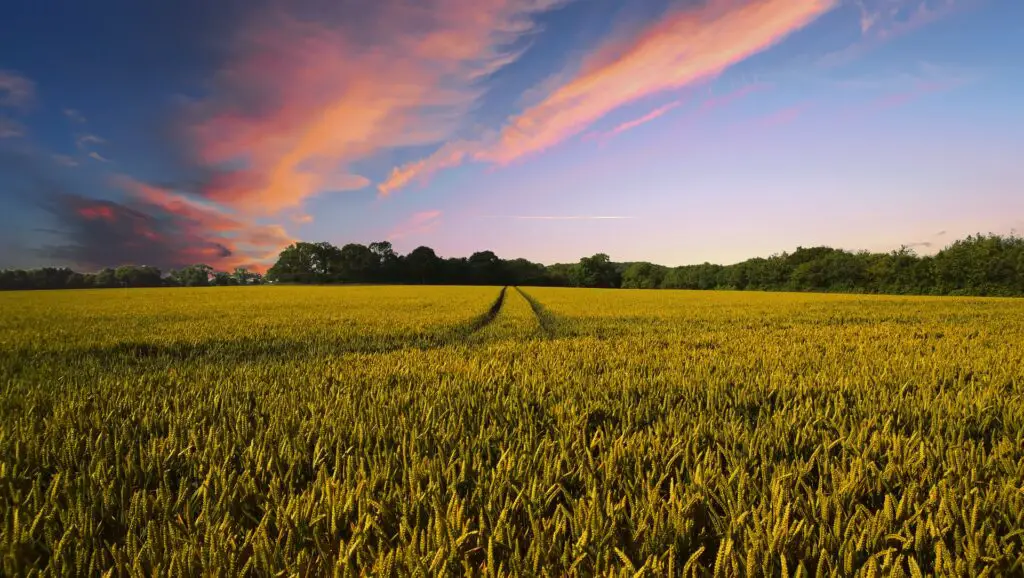
IELTS Speaking Part 1: Farming
Topic # – Farming
Q1. Have you visited a farm?
Being a nature enthusiast, I have visited farms numerous times. Whenever I get bored with the hustle and bustle of the city, I prefer to visit countryside areas to get clean and pristine air.
Q2. What kind of farm do you like?
I like farms which have a tubewell inside them. During scorching heat, I prefer to bathe in the lush green farms to feel refreshed.
Q3. Do you think farming is important?
Yes, farming is important because of two reasons. Firstly it pampers the appetite of people. The determination, dedication and discipline of millions of farmers at their workplace provide us with food to eat.
Moreover, farming employs a large section of society. There are many nations like India whose economies thrive primarily on agricultural imports.
Q4. Did you do farm work when you were young?
During my college days, I visited my grandparents in the countryside. They had big farms, and whenever I would go there, I would provide them with unabated support in various tasks.
Q5.What are the benefits of small-scale farming compared to large-scale agriculture?
Well, there’s a big difference between small-scale farming and farming at the big scale. First, the budget we usually see for farmers is generally based on loans, so I think a shortfall for small-scale farming is helpful for those who cannot spend too much money on their crops. Apart from that, large-scale farming has other benefits too, like the more you grow your land, the more money you will earn, but there are also some drawbacks, like extensive large-scale farming requiring more money and more time. We also have to take a lot of precautions while conducting large-scale farming.
Q6.Have you ever visited a farm?
Yes, we have our farms, and needless to say, I visited there a couple of times. We usually grow sugarcane crops on our farm, which we then transfer to our sugar mill. And apart from that, we also like to plant some particular kinds of lentils and rice on our farms.
Q7.Do you think it’s important for people to know where their food comes from?
Yes, I think in this contemporary era, we have a lot of pesticides in use to grow crops in no time. So definitely I think people should know the value of the products, like whether they are organic or they are pesticides because it’s it has an effect it has a profound impact on their healthy lifestyle healthy life so yes I think people should check before eating their products.
Q8.What are some common crops or animals that are farmed in your region?
In my region, buffalo and cows are mostly the primary source of dairy foods, so people like to keep them as pets and earn money. If I talk about the crops, people usually grow wheat, some lentils, corn, and sugar. Apart from this, sugarcane cultivation is also widespread in my region.
Q9.How do you think advancements in technology have impacted farming practices?
Technology has a significant role in farming these days because, with technology, people are very advanced in growing. Farmers change their ways of growing crops. For example, like the first farmers, the cultivators had to spread the seeds with their hands.
But now we have machines like cultivations, a cultivator which helps them to put seeds in a deep soil and apart from that we can now check the measure of the water like how much water a crop needs which is suitable for their growth and apart from that like recently see in a Dubai the artificial rain due to the artificial rain has been proven very useful to grow crops in that in such kind of area like Dubai and Abu Dhabi we are all where we where they have them in Dubai and Abu Dhabi regions.
Q10.Would you consider living on a farm in the future?
No, I don’t have any plan to live on a farm in the future because many factors caused me to change my mind, first of all, the pesticides used by farmers. I don’t want to put people’s lives in danger by using pesticides, but at the same time, I prefer organic farming. It is challenging and complex and needs more money, and our government gives very little support to the farmers. Therefore, I wouldn’t prefer to do farming in the future.
Q11.How do you think climate change affects farming?
Well, there are a lot of differences that can be seen in the climate changes on farming first of all like in India, like in my region we usually get plenty of rain in, we can say torrential rain in like in the past which is good for the crops like rice and lentils. Still, the rain rate has dropped by 30%, and we have only had rain for two to three months now. It’s occasionally, so the government has to give extra water to motors and the turbines, so I think that’s a difference that can be seen in the climate changes in farming.
Q12.Do you think organic farming is better than conventional farming?
Definitely, yes. Despite being costly, it has a lot of significant advantages to society compared to the other products that are growing in the use of pesticides. They are not suitable for people’s health, and we only put people’s lives in danger by using pesticides just for the sake of money. I think organic farming is essential for people’s holistic development.
Q13. What role do you think government policies should play in supporting farmers?
The hefty amount of money needed for subsidies or loans should be a prudent measure a government can undertake to support their farmers. Apart from that, the government should conduct campaigns and organize meetings to educate farmers about the growth of the newly growing farming techniques. The government can take wise steps to support their farmers’ rights.